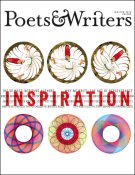The latest casualty in the ongoing siege of academic presses and literary magazines in the economic downturn was recorded last fall when Northwestern University in Evanston, Illinois, announced plans to end the forty-five-year run of its prize-winning journal TriQuarterly as a print publication. After the magazine's final print issue this spring, it will become an online-only, student-run publication associated with Northwestern's new MFA program in creative writing, located on its Chicago campus. The positions of the magazine's longtime editor, Susan Firestone Hahn, and associate editor, Ian Morris, will be eliminated.
In a press release, Northwestern framed the magazine's transition into electronic form not as a cost-cutting measure but in glowingly positive terms. "This move will align publishing efforts more closely with the university's academic enterprise while at the same time expanding electronic dissemination and public access to the wonderful literature and essays that are published in TriQuarterly," university librarian Sarah Pritchard said in the release. "Scholarly publishing is increasingly moving to open access, allowing greater distribution of academic work. This reflects that trend and allows the journal editors to take advantage of the multimedia capabilities offered through online publishing."
But Hahn and Morris, who were largely uninvolved in the discussions leading up to the decision (university officials notified them of the changes, including their terminations, about two hours before issuing the press release on September 21), see it as effectively signaling the death of TriQuarterly, which in recent years has published work anthologized in the Best American Short Stories, the Best American Poetry, and the Best American Essays. Works that appeared there have also won O. Henry and Pushcart prizes.
"I was completely taken aback by the decision told to me on that day—actually shocked—and didn't realize at the time that this was a finished deal," Hahn said via e-mail. "Perhaps eight months ago, I had been asked what I thought about TriQuarterly becoming a completely online journal. I stated that I did not want this for the magazine. However, I did add that I very much admired the Kenyon Review model, where there is both an online edition and a print version. I honestly thought this was going to be the next step in TriQuarterly's future."
Morris had been braced for at least incremental change at the magazine in the wake of a recent administration review of Northwestern University Press, to which TriQuarterly is attached. (The university says it will continue TriQuarterly Books, which publishes fiction and poetry, as an imprint of the press.) "We thought there would be a cutback in expenses, or a mandate to look for other ways of bringing in revenue," Morris said. "I wasn't expecting this at all."
Northwestern's decision, which followed recent cuts in the academic subsidies of the New England Review at Vermont's Middlebury College and the Southern Review at Louisiana State University, was the subject of considerable comment in the literary world, much of it sharply negative.
"I think it's a catastrophe," says Edward Hirsch, president of the John Simon Guggenheim Foundation and a prize-winning poet who guest-edited what is to be TriQuarterly's final print issue. "It's just a terrible idea, and somewhat disgraceful, to take an imaginative, exciting journal with a great tradition of commitment to experimental fiction—and in fact a wide-ranging commitment to literature in all its guises—and turn it into a student-run, vaporous magazine on the Web. It's not that there's not great value in student magazines, but why take something with the prestige and reputation of TriQuarterly and basically destroy it? Northwestern is a great university, and its development office could have worked with the journal to find a donor base to ensure its ongoing health. But it didn't, which shows a lack of leadership in the university and a lack of commitment to the literary values that TriQuarterly represents. It's a question of priority."
The online version of TriQuarterly will continue to solicit and publish poetry, fiction, and essays from outside the university community. The work will be chosen by student editors supervised by the novelist Gina Frangello and Susan Harris, editorial director of the online literary journal Words Without Borders. Following repeated attempts to interview Northwestern officials, university spokeswoman Mary Jane Twohey said they would have no further comment beyond the press release until the changes to TriQuarterly are implemented later this year.
In the meantime, Hahn, the author of eight poetry collections and two produced plays, sees the downfall of her beloved magazine as a cautionary tale. "I hope it will be that other institutions where literary magazines are in jeopardy will pause and reconsider closing such journals," she says. "In my opinion, if TriQuarterly becomes the object lesson of what not to do, then at least something positive can be gained from all this."
Kevin Nance is a contributing editor of Poets & Writers Magazine. He lives in Chicago.










Comments
ipwwat replied on Permalink
2015
a great tradition of commitment to experimental fiction,editorial director of the online literary journal Words Without Borders. ".2015topwatches This move will align publishing efforts more closely with the university's academic enterprise.